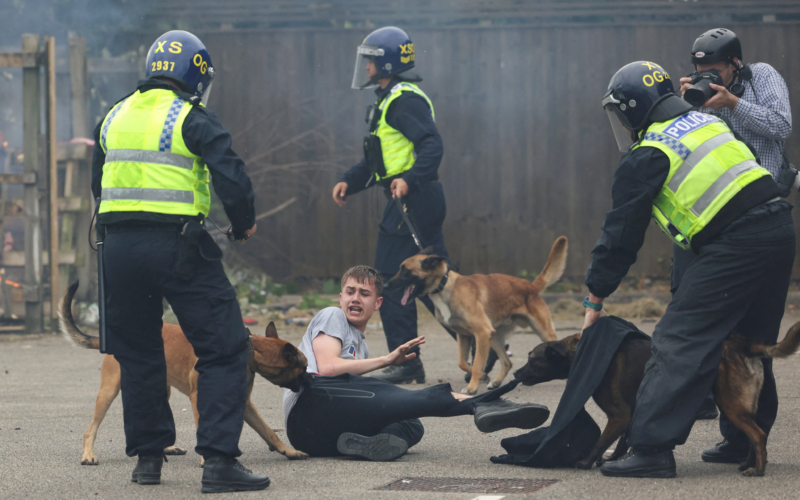The recent anti-immigrant riots that have swept through Britain have exposed the fragile state of the nation and the critical challenges facing the new Prime Minister, Keir Starmer. While the immediate violence may have subsided, the underlying issues remain a ticking time bomb for his government.
The unrest, marked by torched cars, attacks on mosques, and violence directed at hotels housing asylum seekers, reflects deep-seated frustrations in economically deprived areas. These are regions where public services are crumbling, and the cost of living crisis is hitting hardest. The far-right has successfully capitalized on these grievances, stoking tensions over immigration and government failures.
Starmer’s response has been to crack down on violent protesters, a move supported by many. But this is only a temporary solution. The real test for Starmer is whether he can address the root causes of this unrest: the fraying public services, the scarcity of jobs, and the failure to manage immigration effectively.
Britain’s immigration policy, which was supposed to tighten after Brexit, has instead seen legal immigration soar to record levels. While there is public support for welcoming refugees from Ukraine, Hong Kong, and Afghanistan, the sheer scale of immigration has become a lightning rod for discontent. The government’s inability to deliver on promises to reduce these numbers has only fueled anger, particularly in the regions hardest hit by economic decline.
Starmer’s pledge to cut migration numbers is one thing, but delivering on that promise is another. The reliance on foreign workers to fill critical roles in healthcare and other sectors complicates any effort to reduce immigration without damaging the economy further. The recent riots make it clear that the government must do more than just manage immigration; it must invest in neglected areas, revive the economy, and restore public trust.
The challenge for Starmer is immense. His government needs to show that it can improve living standards, reduce NHS waiting lists, and create jobs in regions that have long felt abandoned. If he fails to address these issues, the far-right will continue to exploit the discontent, and the unrest will likely return.
Starmer’s experience as a former chief prosecutor gives him the tools to handle the immediate disorder. But ensuring that such violence does not recur will require more than just law enforcement; it will require a comprehensive plan to rebuild the nation’s economy and public services.
The recent riots are a wake-up call for the Starmer government. They highlight the urgent need for action to address the deep-seated issues that are driving people to the streets. Starmer must deliver on his promises, or he risks losing control of a country that is increasingly on edge.








